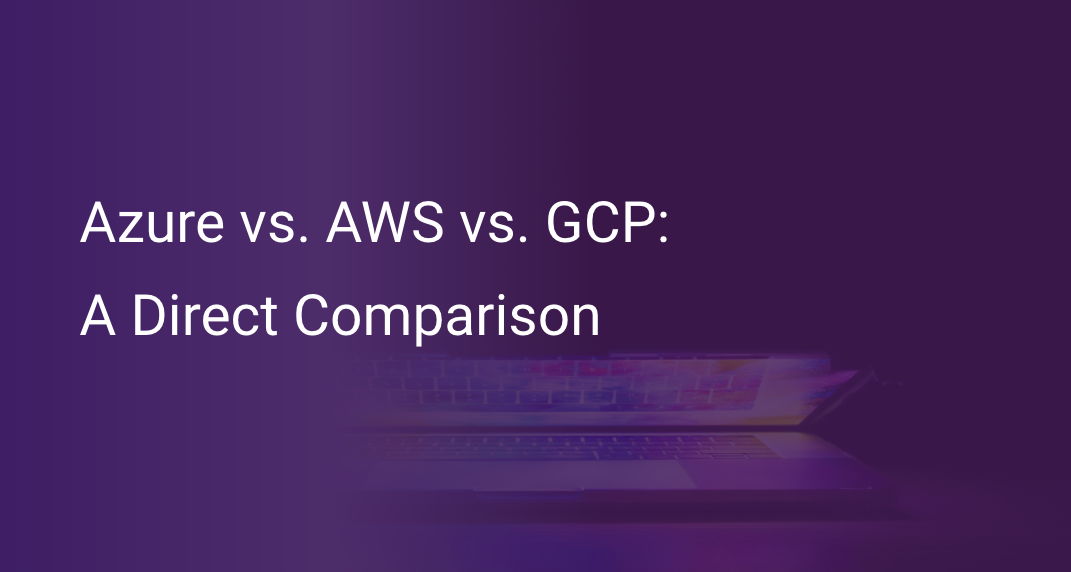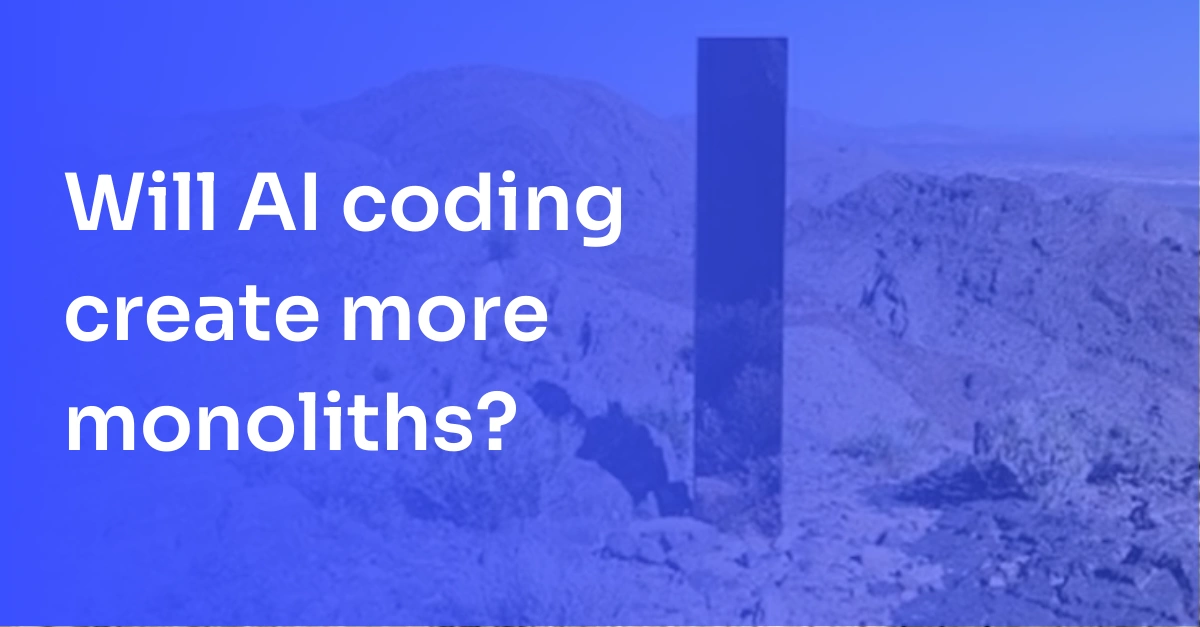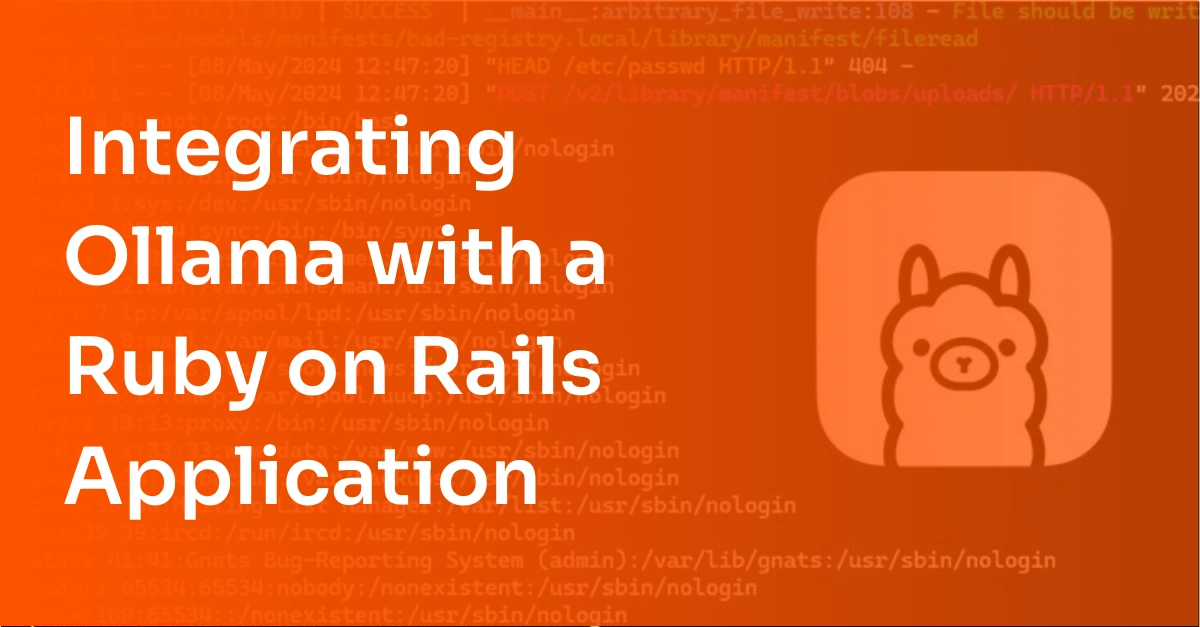Azure vs. AWS vs. GCP: A Direct Comparison

Ever since the pandemic hit the world in 2020, many businesses and institutions have begun to adopt cloud computing into their operations. With more employees working from home, companies have moved from on-site data centers and chosen cloud computing services. Although cloud computing is not new, its relevance has increased during the last year and has revolutionized how businesses and institutions are operating now. With 35% growth in cloud services spending in Q1 of 2021, companies now rely on this kind of service. Companies are also getting on the bandwagon of massive digital transformation. Gone are the days of conventional data managing and communications.
Through cloud computing, businesses can gain three types of services: Software as a Service (SaaS), Platform as a Service (PaaS), and Infrastructure as a Service (IaaS). These services are always hosted and maintained by providers who invest and procure the required hardware and software for their facilities. Providers also maintain servers and storage facilities. They can then offer these facilities on a massive scale to clients of every kind, whether an individual, business, or institution.
The services then support companies by reducing their costs of owning and managing on-site infrastructure and allowing for scalability ease. The help of the pay-for-use pricing model enables client companies to have better control of their resources. Most of these platforms are also self-service, so companies do not have to wait to speak to a company representative to get the services started.
There are many service providers for cloud computing in the market. However, three providers currently dominate the market: Microsoft Azure, Google Cloud Platform (GCP), and Amazon Web Services (AWS). These services are backed by familiar and famous companies, Microsoft, Google, and Amazon, respectively. In this guide, we compare the three cloud providers with one another to help you make the best choice between them.
Feel free to use these links to navigate the guide:
- Comparison Summary
- Core Features and Tools
- Price Comparison
- Compute Service
- Storage
- Current Market Share
- Which Choice is Right For Your Business?
Comparison Summary
This article compares the top three cloud computing service providers so that companies can look at what they offer. This guide will help compare the features and tools that Google, Microsoft, and Amazon provide. When choosing a cloud service, it is essential to look at the core features, price, services, storage availability, and the provider’s reputation in the market.
AWS has had the first-mover advantage for a very long time; however, Azure and GCP have slowly taken up considerable amounts of market share to bring the three to the top, taking up at least 60% of the market together. Popular technological companies back all three services. Amazon, Microsoft, and Google are technology giants in the IT industry. But which service provider will be more suited to your business operations?
|
Azure |
AWS |
GCP |
|
|
Company |
Microsoft |
Amazon |
|
|
No. of Products |
200+ With 22 categories |
200+ With 26 categories |
100+ With 18 categories along with other Google Cloud Products like Google Meet, Google Workspace, Gmail |
|
Pricing Mechanism |
Free Trial and Pay-as-you-Go, and Price Quote Check available. Each service costs lesser than a dollar for every set unit. |
||
|
Compute |
10 different products |
5 specific categories with 23 different products |
12 different compute products |
|
Storage |
7 different products |
6 categories offering 10 different products |
7 different requirements offering 8 different products listings |
|
Market Share (Q1, 2021) |
19% |
32% |
7% |
Core Features and Tools
Provisions of services are essential for a business to study before committing to the service. Understanding what services you will be signing up for will be the make and break for your organization’s success.
Azure’s Features
Developed by Microsoft in 2008, Azure has been steadily climbing into the cloud computing service market. It is built specifically to help build, test, deploy and manage applications and services. They use data centers that Microsoft manages. It provides all three services, IaaS, PaaS, and SaaS solutions. It is used by many industries ranging from manufacturing, retail, government, healthcare, and even financial services.
Azure provides on-premises, hybrid, multi-cloud solutions for companies to build, manage and deploy apps. It provides flexibility and freedom to developers. Its provisions allow you to use any programming language, framework, or infrastructure to face challenges. For example, it has over 200 different products to support your business demands.
- Create fast NoSQL applications through open APIs with any scale that you need through Azure Cosmos DB
- Use Visual Studio to develop, debug and deploy different cloud apps
- Azure Arc can help you unify on-premises, hybrid and cross-cloud infrastructure
- Azure App Services can help you expand apps to additional locations, increasing your accessibility
- You can use Azure Kubernetes Services (AKS) to build and scale apps using managed Kubernetes
- Azure Machine Learning can help develop, train and deploy machine learning
Through Azure, your company can create and customize your systems, web and mobile apps, and cloud computing using the plethora of tools and resources that are available at your disposal. The service helps you accelerate your developing team’s creativity and enables you to deploy faster. Its ease of use and its many product and services’ support allows you to migrate to it confidently and securely.
One of the most significant advantages Azure has in the market is many companies use Windows. This makes it easy for many companies based on familiarity with Microsoft. Secondly, Microsoft has been working heavily on enabling its hybrid computing solutions, which will support companies that need hybrid environments. Microsoft also has a vibrant ecosystem. It has partnered up with many technology vendors and infrastructure spread across the globe. Innovation is at the core of Microsoft Azure’s provision, and it makes their clients future-ready.
AWS’s Features
AWS is a subsidiary of Amazon. It provides on-demand cloud computing services and APIs to its clients. It was founded in 2002, initially only providing web-based services, but it expanded to cloud computing in 2006. This makes it the earliest service provider for cloud computing, giving it an advantage over both Azure and GCP in the market.
AWS is a platform that provides compute power, database storage, content delivery, and other functionalities to its clients and users. It aims to help developers build sophisticated applications that are flexible, scalable, and reliable. They provide solutions to many different types of industries. This is done so with the support of a global network that AWS has, spanning 81 availability zones across 25 regions in the world. It also provides over 200 products to support companies with their IT requirements. However, most of the products available are not directed towards end-users but developers.
The featured services of AWS are as follows:
- Amazon EC2: Virtual servers in the cloud
- Amazon DynamoDB: Managed NoSQL database
- Amazon VPC: Isolated cloud resources
- Amazon Simple Storage Service (S3)
- Amazon RDS: Database service for PostgreSQL, MySQL, MariaDB, SQL Server, Oracle
- Amazon Lightsail: For virtual private servers
- Amazon Aurora: High-performance database with relation management
- AWS Lambda: For executing small pieces of code
- Amazon SageMaker: For building, training, and deploying machine learning models
AWS is flexible, cost-effective, scalable, secure, and seasoned. The services provided are engineered to take care of most clients’ requirements. AWS has a lot to offer with its sheer expanse of products and services as listed above. Because of its size and experience, AWS can provide these services at generally comparable prices. The economies of scale are in their favor. It is also popular amongst many developers, which is why it can still hold on to its ground in the market and still dominate the market share of one-third of the market’s revenues until now.
GCP’s Features
Google Cloud Platform or GCP has been around since 2008 and is offered by Google. It provides IaaS, PaaS, and serverless computing environments. It is a suite of services that run on the same infrastructure as many of Google’s end-user products familiar to many people, such as Google Search, Google Drive, etc. GCP aims to accelerate the transformation of a business with the help of the cloud. It envisions to help developers build apps faster, help companies make smarter decisions, and help connect people from any location in the world to support collaboration.
Currently, Google boasts the availability of its infrastructure in over 200+ countries & territories, with 76 zones as of writing this article. It has 25 cloud regions and 144 network edge locations. It continues to increase its infrastructure and aims to expand in Doha, Toronto, Melbourne, Delhi, Paris, Milan, Santiago, Madrid, and Turin.
GCP’s featured products are as follows:
- Compute Engine: Provides virtual machines that run in Google’s data center
- Cloud Storage: Provides secure, durable, and scalable object storage
- Cloud SDK: Provides Google Cloud command-line tools and libraries
- Cloud SQL: SQL related database services
- Google Kubernetes Engine: Provides managed environments to run containerized apps
- BigQuery: Provides a data warehouse for an agile business and supplements insights
- Cloud CDN: Provides a content delivery network for web and video
- Dataflow: Provides streaming analytics for stream and batch processing
- Operations: Provides APM suites
- Cloud Run: Provides a fully managed environment suitable for operating containerized apps
- Anthos: Provides a platform for modernizing already existing apps and building new ones
- Cloud Functions: Provides an event-driven compute platform specifically for cloud services and apps
Google Cloud commits to an open-source, multi-cloud, and even hybrid cloud environment, which supports you to avoid going through a vendor. It maximizes data insights through its machine learning and advanced analytics capabilities. This method helps companies automate processes, understand and make intelligent predictions, and help streamline operations.
The data on Google Cloud is protected and secured by its advanced security tools that are security-compliant and promise data confidentiality. Google Cloud also supports communication within and outside the company to foster a collaborative atmosphere for everyone involved with the project. Facilities like Gmail and Google Meet are integrated into the workspace to ensure the company’s workflow does not stop.
An added feature of GCP is that it attempts to run on the cleanest cloud, making it environmentally friendly too. Google matches 100% of renewable energy to the electricity used by its facilities, making your business sustainable too. GCP is also a customized solution to help you cut down costs and ensure ROI.
Price Comparison
Pricing is essential for any company to consider whenever they decide what service they should be investing in. Moving from conventional IT solutions to cloud-based solutions has benefitted many businesses because of its low costs.
The pay-as-you-go method allows companies to have more control of their expenditures. The subscription model also supports them by removing the need for year-long contracts, as you can cancel these subscriptions at any time.
Azure Pricing
With cloud computing services, Azure uses the pay-as-you-go approach for its clients. Although there isn’t a menu available in a traditional manner, the licensing of the services and products will be based on what you choose and not the whole suite. It also provides situation-based discounts, and the pricing structure is based on units depending on the product.
A price calculator is available on the website, which can help you after you fill in the information of what you need. Many of the products are available at under $1 per unit. However, it is advisable to go through their free account first to see what is helpful for your company and what is not.
AWS Pricing
AWS offers up its users a pay-as-you-go method. This is available for over 160 of its cloud services. As a user, you only have to pay for the individual service you signed up for, not the entire suite of AWS. The subscription model helps you control what you need to use and easily unsubscribe when not using it. It also helps to know that with AWS, the more you use, the cheaper the model becomes for you.
AWS offers a cost calculator on its website to help figure out some of the costs, but it is much better to contact AWS Sales for a quotation. It also allows you to use a free account, which you can use to figure out what works and what does not work for you before fully committing to AWS’s services. It is also laid out clearly that AWS does not have any additional costs and termination fees.
GCP Pricing
GCP supports only paying for the services that you subscribe for. It offers pay-as-you-go pricing and discounts for prepaid resources. However, for that, companies will have to request a quote. This is pretty easy to do with just a click of a button. To understand its pricing, you will need to know what products you would like to use, and you can quickly fill the information in the pricing calculator if you want to do it yourself.
GCP also has a price list available which you have to go for the individual product to find out. Many of the services start from under US$1 per unit, and it adds up as your requirement increases. There is also the option of using it in a free trial. You can use this to test out whether GCP works for your company’s needs or not before fully committing to its subscriptions.
Compute Service
Cloud providers offers to compute services as an essential part of Infrastructure as a Service (IaaS). It gives users access to computing resources such as processing power, data storage, and networking. All three companies have various products that serve this purpose. Here’s what you need to know:
Azure’s Compute Service
Azure assures customers with infrastructure to build new applications, deploy existing ones and even containerize them. Depending on the service, they can also deploy Windows and Linux virtual machines. Azure can support companies through most IT needs with its hybrid environment solutions.
The following are the compute products that you can choose from:
- Virtual Machines: Used for provision of Linux and Windows virtual machines according to your specific configurations within seconds
- Virtual Machines Scale Sets: Used to create, automate and manage virtual machines and that too at a controllable scale
- Azure Kubernetes Services (AKS): Used to deploy, manage and operate Kubernetes simply
- Azure Functions: Used to accelerate the development of the app, with a focus on event-driven and serverless architecture
- Service Fabric: Used for Linux and Windows to develop microservices and to orchestrate different containers
- App Service: Used for creating cloud apps that will be used on web or mobile
- Container Instances: Used to containerize apps to manage them and run them quickly through a single command
- Batch: Helps managing and scheduling jobs and can help to scale tasks for virtual machines
- Cloud Services: These services are highly available and scalable cloud APIs and apps. Having this helps you focus more on the app than on worrying about what hardware you have available.
- Azure Dedicated Host: Used for the deployment of Azure VM on a physical server owned by the organization
AWS’ Compute Service
AWS supports computing for a diverse workload for its clients. Unlike Azure, the Compute Services provided by AWS have several categories and products. The categorization of these services is based on a more detailed breakdown of requirements for its compute services.
GCP’s Compute Service
GCP’s compute service is secure and completely customizable, with a choice of using predefined machine types to customize virtual machines; GCP allows clients to choose based on the following features and client requirements:
- Day to Day computing through E2 machines
- Balanced price and performance through their N2, N2D, and N1 machines
- Ultra-high memory with M2 and M1, which are memory-optimized
- Compute-intensive workloads which C2 can support for compute-optimized machines
- Most demanding applications and workloads choose A2, which is accelerator-optimized for high performance
Storage
Cost-effective storage of data is vital for a company. With data being the center of the flow of information, it is essential to know what kind of storage and security is being offered by the cloud computing service providers.
Azure Storage
Azure’s cloud storage is highly scalable, performant, secure. It has several products for cloud storage, and here is a guide to which one to choose based on requirement:
- Azure Disk Storage: For durable and high-performance block storage for VM
- Azure Blob Storage: For object storage, that is scalable and secure and is specifically for cloud-native workloads, data lakes, archives, machine learning, and high-performance computing
- Azure Data Lake Storage: For high-performance analytics instances that demand massive scalability and security
- Azure Files: For serverless, enterprise-level cloud file-sharing that is also secure
- Azure NetApp Files: NetApp powers this enterprise-level file storage
- Azure Data Box: Azure’s answer to solutions for data that is offline
- Microsoft Azure Confidential Ledger: The most secure option for unstructured data. It is tamper-proof and can be verified cryptographically.
AWS Storage
AWS provides a wide range of services for storage based on object storage, file storage, block storage, backing up, and data migration with the following products:
|
Category |
Storage Service |
|
Object Storage |
Amazon Simple Storage Service (S3) |
|
File Storage |
Amazon Elastic File System Amazon FSx for Windows File Server Amazon FSx for Lustre |
|
Block Storage |
Amazon Elastic Block Store |
|
Backup |
AWS Backup |
|
Data Transfer |
AWS Storage Gateway AWS Data Sync AWS Transfer Family AWS Snow Family |
GCP Storage
Google is well known for its Cloud Storage, even among individual users. This is primarily because of its product, Google Drive, which provides free 15GB storage along with Gmail. However, for businesses seeking cloud computing services, GCP includes storage facilities and services based on specific requirements:
- Object Storage: Object storage through Cloud Storage can store any type of data and is limitless. It is beneficial for companies that deal with lots of data lakes and media-related files.
- Block Storage: Two types of products provide this, Persistent Disk and Local SSD. Persistent Disk is suitable for disks for virtual machines, whereas Local SSD works well for flash-optimized databases and an application scratch disk.
- Archival Storage: This is also provided through Cloud Storage (mentioned with object storage), but it works well for backups and costs meager.
- File Storage: Filestore is a fully managed service for file storage and migration mounted on Compute Engine VMs. It is best for web content management, migrations of applications, analytics, rendering, and media processing.
- Data Transfer: Two services provide data transfer, Data Transfer Services and Transfer Appliance. DTS provides tools for transferring data from one cloud provider to another or a private data center. This is great for research information and migration. On the other hand, Transfer Appliance is used to move data from field locations with limited connectivity. It is best for archival migrations and analytics and is used in places with limited bandwidth.
- Mobile App Services: Cloud Storage for Firebase provides scalable storage for content created by the users.
- Collaboration: You cannot mention GCP without Google Workspace, where you can store information securely and share it securely with those across the organization. It also supports content collaboration through services such as Google Docs and Google Meet.
Current Market Share
Understanding how a service provider performs in the market can tell you how reliable the company is.
At the beginning of 2021, global cloud services clocked in a revenue of $41.8 billion. Together the top three companies dominate almost 60% of the market. It does not seem to stop as their revenues are also shown to have an aggressively increasing trend for Azure and Google, growing at 50% and 56%, respectively, year-over-year.
Azure Market Share
Azure has been taking on the market with considerable growth in the past year. It has seen an increase of 50% for three consecutive quarters, as Canalys reports in Q1 of 2021. With this amount of growth in its revenue, it has also captured 19% of the market share. This is mainly attributed to the investments made in Azure Arc to improve hybrid IT control plan management, Azure Synapse, and AI. Azure also claims that 95% of the Fortune 500 trust the Microsoft Cloud, so there is merit to seeing the company’s exponential growth soon.
In Q4 of 2020, Azure had a market share of 20%, while the market share was at 17.6% in the previous year. The overall growth in revenue and market shares shows that Azure is not stopping at becoming a solid contender in the market for cloud computing.
AWS Market Share
AWS has the first-mover advantage on their side and has been able to control a market share of 32%, with a growth of 32% recorded in the first quarter of 2021. AWS increased its infrastructure within the same quarter and opened new locations in Croatia and Indonesia. It also began work for 5G networks in the United States and Japan.
AWS has maintained its market share of 32% for the last quarter of 2020 and 2019. This shows that the company is still defending its market share and does not seem to be slowed down by the growth of other companies in the industry.
GCP Market Share
GCP held on with a 7% market share, but it grew 56% in revenue, a considerable feat in the first quarter of 2021. The previous quarter, Q4 of 2020, GCP held on at 7%, growing from 6% in Q4 of 2019. GCP has been maintaining its momentum and benefiting from strengthening its AI facilities.
Which Choice is Right for Your Business?
The right choice for your business depends on your requirements and understanding of the service’s features and pricing.
AWS is appealing because of its diverse collection of services and its scale. It is also reliable because it has been in the business much longer. It is, however, more suited for large-scale companies with concerns that span globally.
Azure is lucrative because of its connection with Microsoft and the familiarity of Windows, and its continued innovation. But Azure would be more suited for companies with hybrid environment requirements and already uses Microsoft for other purposes.
Lastly, we have GCP, which is growing slowly and steadily. Google is more suited for a young, web-based startup that needs to control its costs. It is important to note that all three will have a free version, and it is a good idea to try it out before making a final decision on which to subscribe to.





